Fishing & Sustainability
Our Fishing & Sustainable Practices
At EBFA, sustainability is at the core of everything we do. Our members employ bottom-contact fishing methods that are critical to providing Europe with fresh seafood while minimizing environmental impacts. Through seabed protection measures, fisheries management and responsible fishing practices, we ensure the preservation of marine ecosystems. Our goal is to balance socio-economic benefits with environmental protection, securing a future where bottom fishing remains a key pillar of Europe’s seafood industry.
EBFA and its members adhere to rigorous EU regulations and strict certifications, demonstrating our commitment to responsible fishing practices and marine conservation.
Types of Bottom Fishing
Sustainability and Seabed Protection
EBFA acknowledges the critical importance of balancing the economic and social contributions of bottom-contact fisheries with the need to protect marine environments. Our members are committed to reducing the environmental footprint of bottom fishing by employing best practices and technologies that mitigate impacts on the seabed and marine ecosystems.
While bottom-contact fishing can have localized effects on the seabed, EBFA promotes responsible management measures, including gear modifications, spatial management (such as area closures or restrictions), and collaborations with scientific bodies to assess and minimize environmental impacts.
These efforts are aimed at ensuring that bottom fisheries can continue to operate sustainably, providing vital food resources while safeguarding the health of marine ecosystems for future generations.
Additionally, EBFA supports ongoing scientific research and monitoring programs to better understand the interactions between bottom fishing and marine habitats. By working with regulators, conservationists, and scientists, we aim to ensure that the seabed remains protected where necessary, while maintaining the economic viability of the fisheries that rely on it. Our commitment to sustainability is reflected in the continuous improvement of fishing techniques and the implementation of regulatory frameworks that promote long-term ecological balance.
Certifications
Commitment to Certified and Sustainable Fisheries
The European Bottom Fisheries Alliance (EBFA) represents fisheries that uphold the highest standards of sustainability and environmental responsibility. Compliance with internationally recognized certification programs is essential to demonstrating responsible fishing practices that protect marine ecosystems while ensuring the long-term viability of the sector.
For example, many of the fisheries within EBFA have been independently certified by the Marine Stewardship Council (MSC), a globally recognized standard for sustainable fishing. This certification guarantees that fisheries:
- Ensure long-term fish stock sustainability
- Protect marine ecosystems and biodiversity
- Implement strict, science-based fishery management
With nowadays growing regulatory demands, independent sustainable certifications provide transparency and credibility. As Iván López Van der Veen, President of the International Coalition of Fisheries Associations (ICFA), states:
![]() In a sector under constant scrutiny and under intense pressure from conservation organisations, businesses, associations and stakeholders in general, we must not be afraid to submit to third-party sustainability appraisals in which these stakeholders participate.
In a sector under constant scrutiny and under intense pressure from conservation organisations, businesses, associations and stakeholders in general, we must not be afraid to submit to third-party sustainability appraisals in which these stakeholders participate.
Beyond environmental responsibility, certification strengthens consumer confidence, ensures market access, and aligns fisheries with evolving sustainability requirements.
Beyond environmental responsibility, certification strengthens consumer confidence, ensures market access, and aligns fisheries with evolving sustainability requirements.
To explore certified fisheries and track their status, visit the MSC Fisheries Tracking Tool:
EBFA remains committed to advocating for policies that support fisheries investing in sustainability,
ensuring a balanced approach between environmental conservation and economic resilience.

